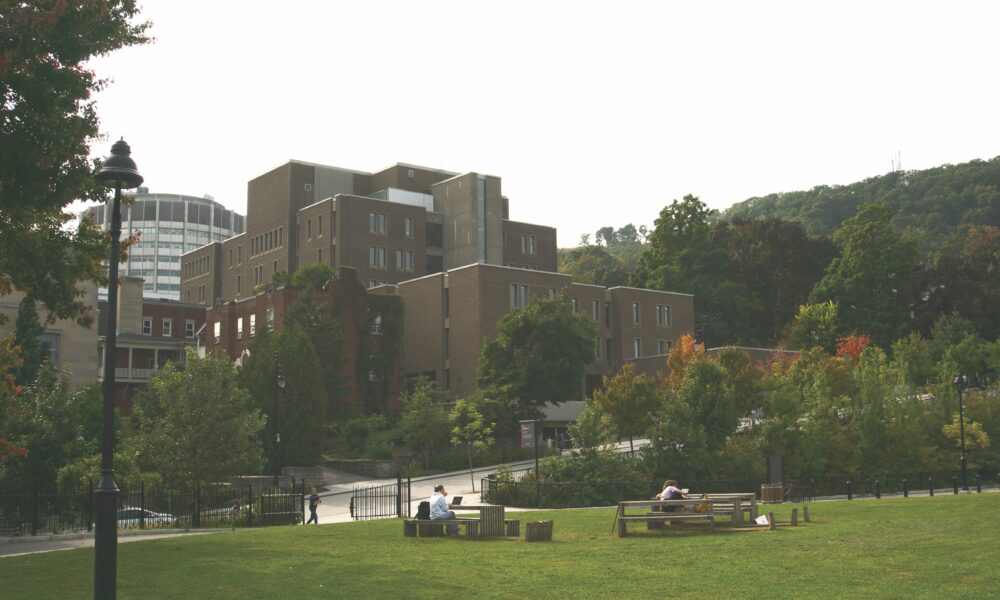In November 2022, Quebec’s Tribunal administratif du travail (TAT) certified the Association of McGill Professors of Law (AMPL) as the bargaining unit representing the Faculty of Law’s tenured and tenure-track professors, a first in McGill’s history. Less than a year later, the Faculty of Education, almost double the size, has followed suit.
The Association of McGill Professors of Education (AMPE) was created on July 4, 2023, and applied to the TAT for certification on Sept. 21, 2023. Dennis Wendt, Interim President of AMPE, says the demand for a union grew stronger within the faculty as dissatisfaction accumulated.
“There are different concerns that different faculty [members] have. If there is a grand narrative, it’s dissatisfaction. And, if there’s one thing that stands out more than anything, I think, is workload,” Wendt told The Tribune. “Any one thing is not a problem, but it’s like death by a thousand paper cuts, and so we have one thing after another after another laid on us, but nothing’s ever taken away.”
Helena Silen, U2 Education, is the vice-president of Academic Affairs at the Education Undergraduate Society of McGill (EdUS). She expressed solidarity with the Education professors on behalf of the EdUS and stressed the importance of fairly compensated faculty for students’ learning conditions.
“As students, I think the bottom line is […] that a happy teacher and a teacher who has the bandwidth and support to be present in the classroom will lead to a better class,” Silen said. “So, it makes me happy to think that they could be more fairly compensated.”
According to Wendt, teaching is only 40 per cent of a professor’s duties. Research occupies another 40 per cent of their workload, and the remaining 20 per cent is dedicated to service and community contributions.
Wendt argues that the expected workload exceeds the time and effort professors are compensated for. In part, he attributes this issue to changes in course-relief policies, which temporarily release professors of certain teaching duties following awards, research grants, or major administrative roles. Wendt told The Tribune that the administration has “cracked down” on granting course releases in the recent past, to the professors’ dismay.
AMPL President Evan Fox-Decent has found that since unionizing, the faculty has more equal footing against McGill. The union is currently in negotiations with the university over their first collective agreement.
“AMPL is thrilled that another faculty at McGill has decided to take better control of its own governance, and is confident that our colleagues in the Faculty of Education are going to find, as we have, that the opportunities available to professors, once they organize into a certified Faculty Association, are unlike opportunities that are otherwise ever available to them,” Fox-Decent said in an interview with The Tribune.
The path to faculty-level certification was laborious for AMPL, with the university contesting the certification in a year-long legal battle and appealing to the Superior Court of Quebec for judicial review of TAT’s certification decision. Given the administration’s litigious approach to AMPL’s certification, Fox-Decent anticipates a similar attitude towards AMPE. However, he remains hopeful that the precedent law professors set will relieve the need for long litigation.
“It’s regrettable because it’s a distraction. It costs money […] so it deprives us of a certain amount of resources and time and it expresses a regrettable attitude on the part of McGill toward some of their colleagues,” Fox-Decent said. “But it is what it is. It’s going to run its course, McGill is going to lose. And eventually, they’re going to have to just come to grips with the fact that two of their faculties now are organized, and it’s possible that others will be in the future.”
On Oct. 11, McGill informed AMPE of their decision to contest the union’s certification. In a statement to The Tribune, McGill’s media relations office reiterated the university’s commitment to Quebec’s Labour Code, but refrained from disclosing more.
“We, as an employer, are limited in what we can communicate during a unionization drive, in order to not be perceived or construed as interfering with the employee’s freedom of association,” McGill Media Relations Officer Frédérique Mazerolle wrote.
The hearings regarding AMPE’s certification will commence on Nov. 9 before the TAT.









